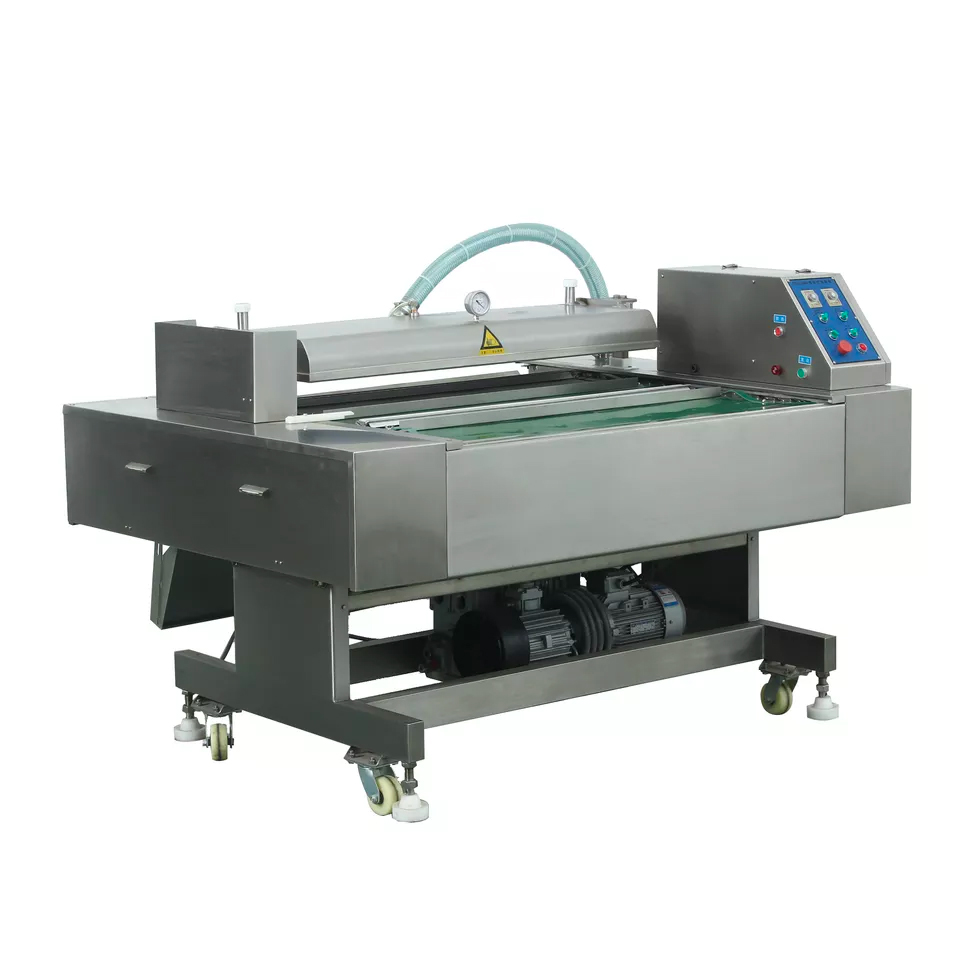No products in the cart.
New
The Role of Vacuum Packing Machines in the Pharmaceutical Industry
In the pharmaceutical industry, where hygiene, precision, and protection are paramount, proper packaging is essential to maintain the quality and efficacy of products. One technology that plays a critical role in pharmaceutical packaging is the vacuum sealing machine. As more manufacturers strive to meet international quality standards and ensure safe product distribution, the demand for reliable vacuum packing technology continues to grow.
Why Vacuum Packing Is Essential in Pharmaceuticals
Pharmaceutical products—such as tablets, capsules, powders, and medical devices—must be protected from moisture, air, and contaminants that can compromise their stability. Vacuum packing machines help achieve this by removing air from the package before sealing, thereby extending shelf life, preventing contamination, and ensuring product integrity throughout the supply chain.
By using a vacuum sealer, pharmaceutical companies can maintain strict hygiene standards, comply with regulatory requirements, and enhance the safety and reliability of their packaging processes.
Applications of Vacuum Sealing in the Pharmaceutical Sector
The use of vacuum packing technology is versatile across many pharmaceutical applications, including:
- Packaging of medical devices such as syringes, catheters, and diagnostic tools
- Sealing of raw materials and active pharmaceutical ingredients (APIs)
- Sterile packaging for items that require cleanroom processing
- Packing of moisture-sensitive tablets and powder formulations
- Secondary packaging for bulk items and storage optimisation
These applications benefit from the reduced oxygen levels and contamination risk that vacuum packagers offer.
Types of Vacuum Sealing Machines Used in Pharmaceuticals
Different products and production environments require different types of vacuum sealing machines. Here are the most common ones used in the pharmaceutical industry:
1. Chamber Vacuum Sealer
A chamber vacuum sealer is ideal for high-precision sealing of pharmaceutical items. The product is placed inside a chamber, and the air inside the package and the chamber is removed simultaneously, ensuring a consistent and secure seal. This method is widely used in cleanrooms and sterile environments.

2. Industrial Vacuum Sealing Machine
For high-volume operations, an industrial vacuum sealing machine offers automated and continuous sealing with high accuracy. These machines are often integrated into pharmaceutical production lines to ensure speed, repeatability, and compliance with GMP (Good Manufacturing Practice) standards.

3. Tabletop Vacuum Machines
Smaller batch runs or laboratories may use compact vacuum machines for precise and clean packaging of sensitive materials or trial products

Benefits of Vacuum Packing Machines in Pharmaceuticals
Using a vacuum packager in the pharmaceutical sector brings multiple advantages:
Enhanced Product Protection: Vacuum sealing protects products from air, moisture, dust, and microbial contamination—key threats to pharmaceutical quality.
Extended Shelf Life: Reducing oxygen exposure slows down degradation, helping to maintain product potency over time.
Compliance with Regulatory Standards: Pharmaceutical packaging must meet strict hygiene and safety regulations. A properly maintained vacuum sealing machine ensures compliance with standards such as FDA and EU GMP.
Cleanroom Compatibility: Advanced vacuum machines can be designed to function in cleanroom environments, with stainless steel bodies and oil-free pumps that prevent contamination.
Efficient Storage and Logistics: Vacuum-packed items take up less space, are easier to transport, and can be stored for longer periods without degradation. 
Key Considerations When Choosing a Vacuum Sealing Machine for Pharmaceuticals
When selecting a vacuum sealer for pharmaceutical use, consider:
- The type and sensitivity of the product
- Required sealing speed and production capacity
- Cleanroom compatibility and material construction
- Level of automation and integration with your existing systems
- The need for traceability and validation in compliance with GMP
Investing in the right vacuum packager can streamline operations and reduce long-term costs.
Conclusion
As the pharmaceutical industry continues to demand higher standards for safety and reliability, vacuum packing technology plays an increasingly important role in ensuring product protection and regulatory compliance. Whether you require a chamber vacuum sealer for sterile items or a high-speed industrial vacuum sealing machine for large-scale production, vacuum sealing provides the clean, controlled, and efficient packaging environment essential for pharmaceutical success.


